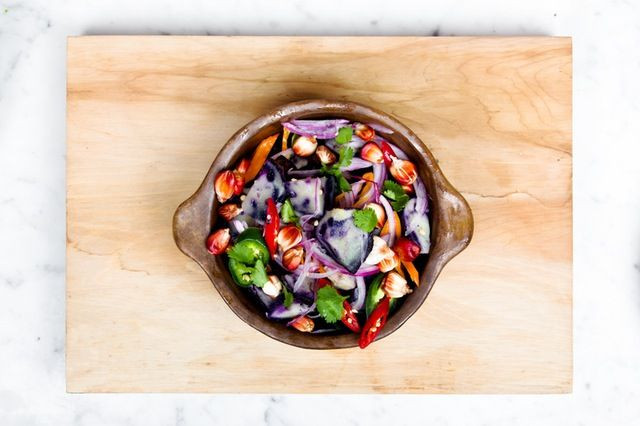What Is The Flexitarian Diet? Guidelines For Weight Loss On The Almost-Vegetarian Eating Plan

Weight loss, improved heart health, and some extra pocket change are all benefits of embracing a vegetarian lifestyle, which also has major environmental benefits and supports animal rights. But some people know they don't have the will to say goodbye to animal products forever.
If you don’t think you can fully commit to a meat-free lifestyle, you might want to consider the flexitarian diet.
Read: Vegetarian Diet Benefits: What Happens When You Quit Eating Meat?
The flexitarian diet shines a spotlight on plant-based foods without completely eliminating meat. Replacing meat with low-calorie vegetables is a recipe for weight loss. U.S. News reported that vegetarians typically weigh about 15 percent less than meat eaters.
"I love the flexitarian diet because it doesn't necessarily pigeonhole you into one way of eating or another," dietitian Pam Nisevich Bede told Shape. "We know that certain diets like vegetarian or vegan sometimes get to be a little bit too restrictive, and the more flexibility that you can introduce while still staying on a regimen is a good thing."
So, what exactly do flexitarians eat?
According to Dawn Jackson Blatner’s book, “The Flexitarian Diet,” people following the diet should completely avoid animal proteins for two days of the week, and then eat a combined 26 ounces of meat over the remaining five days.
Read: Are Vegetarians Sexier Than Meat Eaters? How A Plant-Based Diet Affects Your Smell And Sex Life
Is that still too slack for your ambitious dieting goals?
“Advanced” flexitarians follow a vegetarian diet for three or four days each week, Shape reported, and allot themselves just 18 ounces of meat to consume over the remaining days. If you want to be an “expert” flexitarian, try eating only nine ounces of meat two days a week.
The diet is not very strict, and Blatner emphasizes that you don’t have to follow these guidelines exactly to get results. Eating out at restaurants and moderate alcohol intake are both flexitarian-approved.
Read Also:
Vegan vs. Vegetarian Diets: How Each Will Impact Your Health



























